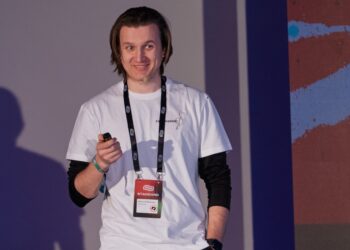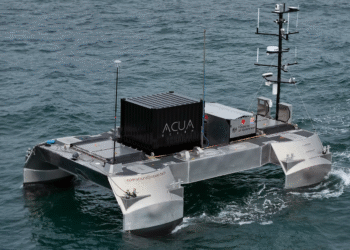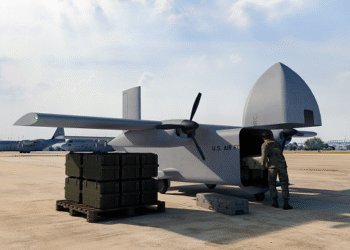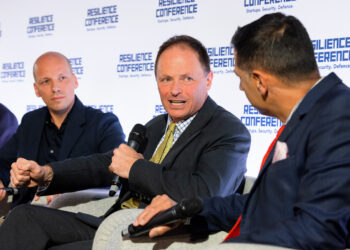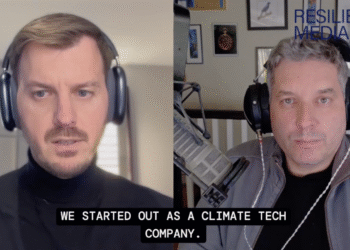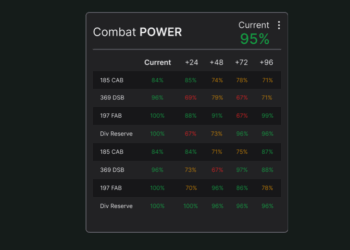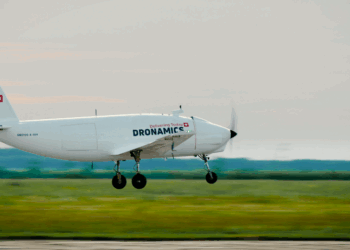Stockpiling Nvidia chips “isn’t good enough,” moderator Mike Butcher told the audience as he opened Resilience Conference’s panel on sovereign compute. “There has to be more to it,” he said – setting the tone for a session that argued Europe’s national security now hinges on whether it can control the hardware and infrastructure powering artificial intelligence.
Will Blythe, co-founder of London-based defence company Arondite, said his firm was born from a frustration familiar to anyone who has served in complex operational theatres.
“You’d really struggle to understand what was going on around different parts of your area of operations,” he said. “The local people couldn’t believe that mighty NATO would really struggle with these really basic things of just understanding what’s happening, sometimes literally around the corner.”
Blythe said Arondite’s mission is to help defence forces integrate “robots and drones and sensors” that are proliferating across the modern battlefield. “Your ability to rapidly integrate systems that weren’t designed to be used together and get them working together effectively basically defines how fast defence can adapt once the war starts,” he said. Its Cobalt platform, he added, allows commanders to “integrate assets and enterprise data,” configuring AI workflows for missions ranging from battlefield reconnaissance to anti-submarine warfare.
Fractile’s CEO Walter Goodwin focused on the other side of the problem – compute. “Half of all the electricity coming online in the United States today is going to data centres for running AI workloads,” he said. The firm is developing new silicon to challenge Nvidia’s 95 percent share of AI compute, targeting the “inference” phase – where trained models are deployed to billions of users.
“Almost all of the economically valuable applications have some kind of speed requirement, and that’s where these GPUs fall down,” he said. “They were very effective in a world where we were training models… Now we have a different axis, and Nvidia completely falls down there.”
Goodwin argued Europe’s opportunity lies in acting quickly rather than trying to replicate US industrial scale. “We’ve actually taped out silicon… We can operate on that same cadence as Nvidia,” he said. “The pace of change in what these models require means everything is still to come. Today’s build-out is basically the flat part of the exponential curve.”
Both founders framed sovereignty as a question of both leverage and independence. “The North Star… is actually leverage,” Goodwin said. “It’s ensuring that not just you are independent from somebody else’s stack, but they desperately require the component that you’re building in order for their stack to work.”
Blythe agreed that the goal was not isolation but options. “It’s about creating options for the state,” he said. “You’ve got to have a view on which bits of the stack you want available to you through allies… even in wartime.” He added that Europe must “generate our options on this side of the Atlantic, so that we can create policymaking space for ourselves in future decades.”
Both called for speed and conviction from government and investors. “I want the UK and Europe to believe that they can and should be able to build industrial capacity and technological capacity in these critically important emerging areas,” Blythe said. Goodwin added: “We do have a once-in-a-lifetime opportunity… but the build-out is happening over the next two years. We do need to act now to seize this.”


